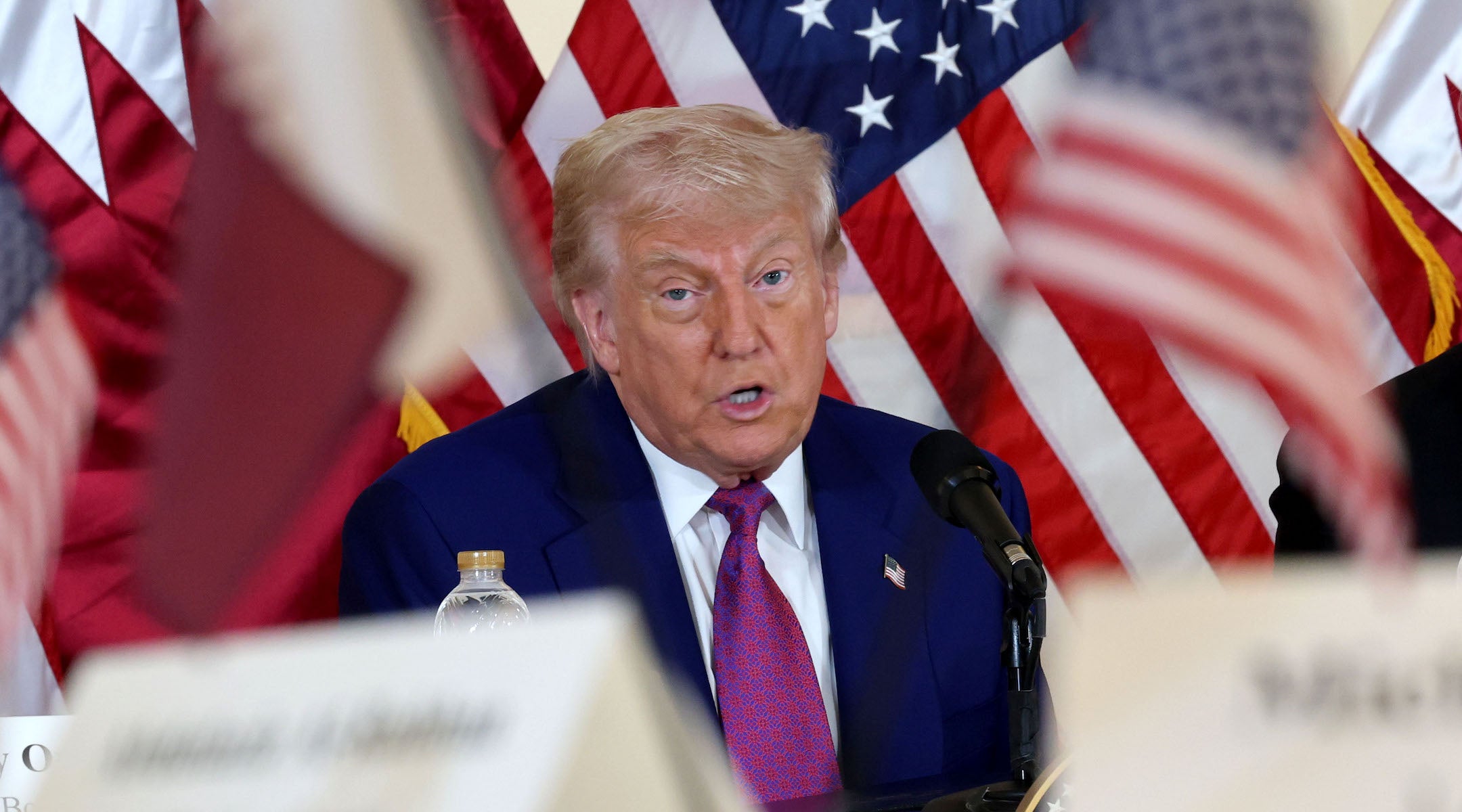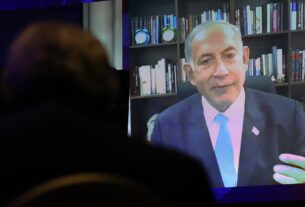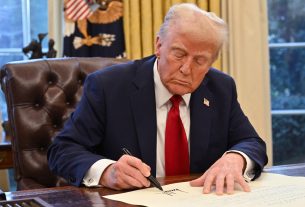The American Jewish Committee has come out against President Donald Trump’s new executive order banning travel to the United States from 12 countries, which Trump says is needed because of incidents such as this week’s attack on a rally for the release of Israeli hostages in Boulder, Colorado.
The stance by one of the world’s largest Jewish organizations comes as some Jewish groups have signaled a growing unease with Trump’s policies, which the White House frequently justifies by citing concerns about antisemitism. The AJC and other major Jewish groups have also criticized his decision to cut funding and otherwise penalize universities where there were pro-Palestinian protests.
“While we are deeply distressed by the rise in violent antisemitic attacks in the United States, and while we appreciate that the administration is trying to mobilize as many levers as it can to counter it, we are concerned that the broad Proclamation issued June 4 seeks to address this alarming issue in a way that lacks a clear connection to the underlying problem and will have an adverse impact on other longstanding immigration and refugee policies,” the group said in a statement Thursday.
The group added that the restrictive order “will prevent those in need of real refuge from entering the United States in line with the longstanding American tradition of welcoming those forced to leave their countries to escape war, persecution, or natural disaster.”
Other Jewish groups weighed in against the ban as well. HIAS, the Jewish refugee and immigrant aid organization, said it was “appalled” by the new ban. “To suggest that banning individuals from entering the United States, simply based on their country of origin, will somehow keep us safer is absurd,” Naomi Steinberg, the group’s vice president of U.S. policy and advocacy, said in a statement Wednesday.
The CEO of the Jewish Council on Public Affairs, Amy Spitalnick, who is an outspoken critic of the Trump administration, issued a statement excoriating the ban soon after Trump announced it on Wednesday.
“The Jewish community’s legitimate fears and concerns should not be exploited to undermine core democratic norms, or otherwise advance discriminatory & unconstitutional policies,” she said. “Doing so only makes Jews — and all communities — less safe.”
Some major Jewish groups did not immediately weigh in on the ban. The Anti-Defamation League, whose CEO, Jonathan Greenblatt, spoke at a vigil for the victims in Boulder on Tuesday evening, has not yet commented on Trump’s order; the group opposed a similar travel ban Trump instituted during his first administration, which was widely interpreted to target Muslims. At the time, Greenblatt called it “a clear example of anti-Muslim bigotry.”
The umbrella group Jewish Federations of North America, which in the immediate aftermath of the shooting at a Jewish museum in Washington, D.C., issued a list of policy priorities its CEO, Eric Fingerhut, says must be taken up — including increased federal funding for security at Jewish institutions — also did not immediately comment on the new travel ban.
Trump’s order includes an outright ban on travel from 12 countries, largely majority-Muslim — Afghanistan, Chad, the Republic of Congo, Equatorial Guinea, Eritrea, Haiti, Iran, Libya, Myanmar, Somalia, Sudan and Yemen — and severely restricts travel from seven others (Burundi, Cuba, Laos, Sierra Leone, Togo, Turkmenistan and Venezuela).
The suspect in Sunday’s Boulder attack, in which 15 people were injured, was an Egyptian national who originally entered the United States on a tourist visa, which had subsequently expired. He had reportedly lived extensively in Kuwait. Neither Egypt nor Kuwait are represented on Trump’s new travel ban, and some of the countries that are — including Iran, Venezuela and Cuba — are home to modest Jewish communities. There are 700 Iranian Jews who were approved to come to the United States as refugees whose immigration is on hold.
Trump cited the Boulder attack as his rationale, saying in a video, “The recent terror attack in Boulder, Colorado, has underscored the extreme dangers posed to our country by the entry of foreign nationals who are not properly vetted, as well as those who come here as temporary visitors and overstay their visas.”
The AJC’s statement noted that the group supports some aspects of Trump’s stance, including “that entry of foreign nationals who are not properly vetted and those who overstay visas can pose national security threats.”




